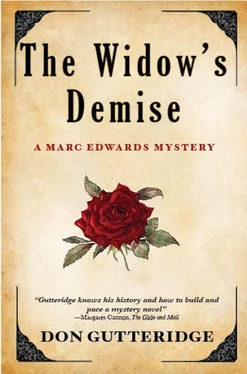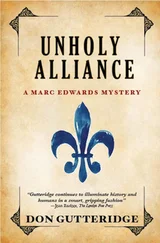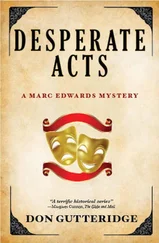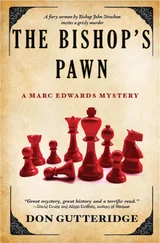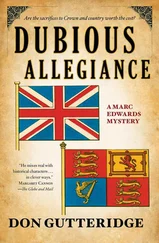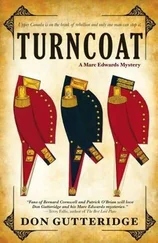Don Gutteridge - The Widow's Demise
Здесь есть возможность читать онлайн «Don Gutteridge - The Widow's Demise» весь текст электронной книги совершенно бесплатно (целиком полную версию без сокращений). В некоторых случаях можно слушать аудио, скачать через торрент в формате fb2 и присутствует краткое содержание. Год выпуска: 0101, Издательство: Bev Editions, Жанр: Исторический детектив, на английском языке. Описание произведения, (предисловие) а так же отзывы посетителей доступны на портале библиотеки ЛибКат.
- Название:The Widow's Demise
- Автор:
- Издательство:Bev Editions
- Жанр:
- Год:0101
- ISBN:нет данных
- Рейтинг книги:4 / 5. Голосов: 1
-
Избранное:Добавить в избранное
- Отзывы:
-
Ваша оценка:
- 80
- 1
- 2
- 3
- 4
- 5
The Widow's Demise: краткое содержание, описание и аннотация
Предлагаем к чтению аннотацию, описание, краткое содержание или предисловие (зависит от того, что написал сам автор книги «The Widow's Demise»). Если вы не нашли необходимую информацию о книге — напишите в комментариях, мы постараемся отыскать её.
The Widow's Demise — читать онлайн бесплатно полную книгу (весь текст) целиком
Ниже представлен текст книги, разбитый по страницам. Система сохранения места последней прочитанной страницы, позволяет с удобством читать онлайн бесплатно книгу «The Widow's Demise», без необходимости каждый раз заново искать на чём Вы остановились. Поставьте закладку, и сможете в любой момент перейти на страницу, на которой закончили чтение.
Интервал:
Закладка:
“I admit I did.”
“And so did Mrs. Cardiff-Jones, the merrywidow.”
Beth laughed. Then she said seriously, “Butthat one is trouble, I suspect.”
TWO
The meeting began sharply at eleven o’clock the nextmorning. It took place in the spacious parlour of Baldwin House. Asthe day was warm, no fire burned in the fireplace with its façadeof Italian marble and great oak mantelpiece. A portrait of RobertBaldwin’s distinguished father, William Warren Baldwin, hung overit. Baldwin senior had designed his townhouse and several otherbuildings in Toronto, architecture being one of his pursuits inaddition to medicine and the law. His son confined himself to thelaw and politics. One of his great achievements so far was toeffect an alliance between the radical rouge party ofQuebec, led by Louis LaFontaine, and the Reform party of UpperCanada, now Canada West with the merging of the two provinces intoone Canada. When the new united Parliament had met during May ofthis year (1841), the alliance had held, despite the absence of theFrench leader, who had been defeated in the riding of Terrebonne.That election had been marred by fraud and violence. But thecoalition of leftist parties, French and English, had resulted inits being the largest single group in the Legislative Assembly,able to use its majority to favour those bills compatible withtheir platform and to defeat those bills of Governor PoulettThomson, Lord Sydenham, that contradicted their views. The Baldwinforces had scored a major triumph by introducing a set of proposalsfor responsible government whereby the Executive – the Governor andhis ministers (the cabinet) – would be subject to the authority ofthe major party in the elected Assembly. While these proposals werevetoed by the Governor, he felt obligated to introduce proposals ofhis own, which turned out to be not dissimilar to Baldwin’s. ButFate had intervened. On September 4 Lord Sydenham fell from hishorse and was severely injured. He was not expected to live.Parliament had been prorogued as the death-watch began.
“Welcome, gentlemen,” Robert said, beginningthe proceedings. “We’re here to discuss the nomination meetingtomorrow afternoon in the fourth riding of York, and to discuss thecampaign in general.”
He looked about the room at the seatedgentlemen with some satisfaction. Present were Francis Hincks, MarcEdwards, Louis LaFontaine and Gilles Gagnon – stalwart associatesall.
“Any news on Lord Sydenham?” Hincksasked.
“He’s not doing well,” Robert said. “He’ssuffering badly, I’m afraid.”
“What a tragedy,” Louis said.
“For him and for us,” Robert said. “Hisproposals on responsible government represent the pinnacle of ourhopes.”
“Lord knows who his replacement will be,”Hincks said. “With the Tory government of Sir Robert Peel makingthe decision.”
“Peel is a traditional Tory?” Louisasked.
“Very much a reactionary,” Robert said.
“Well, Lord Sydenham’s proposal is still onthe table,” Marc said. “And when we get Louis elected, ourcoalition will not merely seem to be a reality, it will be.”
“The current executive can’t last,” Hinckssaid.
“And the next administration will be aLaFontaine-Baldwin one,” Marc said.
“Which brings us to the election,” Robertsaid. “The nomination meeting will be held at the site of the poll,Danby’s Crossing, up north on Yonge Street. Hincks and I will givenomination speeches, to be followed by your address, Louis.”
“The question before us,” Gagnon said, “iswho will say what and why.”
“I thought I would go into Louis’ backgroundas a lawyer and an entrepreneur,” Hincks said, “with an emphasis onthe positive role he played before the Rebellion.”
“Do we play down the Rebellion itself.?”Gagnon said.
“We need to emphasize that he was not acombatant,” Robert said, “that he supported the political aims ofthe revolt and played a significant role in the aftermath, workingto free political prisoners and advising Lord Durham.”
“Many of the people of York were involved inour rebellion,” Hincks reminded the group. “I don’t think we haveto walk on eggs regarding the revolt itself.”
“But there has been quite a backlash,” Robertsaid. “Especially when the Rebellion failed and the reprisalsbegan. I think we should stress the positive and focus on thefuture.”
“You can do that well in your address,” Louissuggested to Robert..
“Yes,” Robert said. “I’ll do my best. I’lloutline the nature of our alliance and emphasize the biracialquality of it. After all, if the united provinces are to succeed,French and English will have to work together.”
“Well,” Hincks said, “we’re offering thepeople a working model.”
“A work-in-progress, eh?” Marc said.
“What will you put in your address?”Robert said to Louis.
“Gilles?” Louis said, turning to hissecretary and good friend.
“Louis will talk about his people, thereasons for their discontent, his struggle with them when theyfirst viewed his discussions with the English as a form of treason,and how he has won many of them over and got them willing to investin a possible future; that is, in this parliamentary experiment. Hewill also talk about the violence in his defeat in Terrebonne, andthe depth of the opposition there in some quarters in Quebec. Hewill offer the voters of York the opportunity to be part of abrave, new future.”
Gagnon spoke in French, not trusting hisEnglish.
“I will also speak of our hopes forresponsible government, for without it our experiment will notsucceed,” Louis said in English.
“Very good,” Robert said. “We have coveredthe territory, I believe.”
“Anything to add?” Hincks said.
“Yes,” Marc said. “I think we should notdwell on certain planks in our platform: like our commitment tomove the Legislature from Kingston to Montreal. Or our plans to putforward a Rebellion Losses Bill.”
“Agreed,” Robert said. “Those measures arenot set in concrete anyway.”
The butler arrived at this point with coffeeand cakes. When these were served, Robert addressed the group oncemore. “Our second item of business is the campaign itself. The pollat Danby’s Crossing will be open for two weeks. The hustings willremain there throughout that period.”
“I suggest we look at the tally at the end ofthe first week and organize another meeting there,” Hincks said.“And of course my paper will be thundering away on our side.”
“We need to bring in the reluctant voters,”Marc said.
“But what if the opposition has its goonsquads about the polling area?” Robert said. “We could be invitingviolence with another meeting.”
“Could we not meet with Dingman’s manager andwork out some peaceful ground rules?” Louis suggested.
“We tried that in Terrebonne, remember?”Gagnon said.
Louis grimaced.
“But this isn’t Terrebonne,” Robert said.“Passions are not enflamed here.”
“They may be,” Hincks said. He pulled out anewspaper clipping. “I take it none of you has seen this screed inthe Gazette ?”
“No. What is it?” Robert said.
“I’ll read it out loud,” Hincks said, andbegan:
Dear Reader:
I am writing this more in sorrow than in anger, butit is something that has to be spoken aloud, before it is too late.As you may have heard by now, in the upcoming by-election in thefourth riding of York, the candidate opposing Mr. Dingman andrunning for the Reform party is one Louis LaFontaine. The mostpertinent aspect of this circumstance is that Mr. LaFontaine is aFrenchman from Montreal. What is a Frenchman doing running foroffice in an English-speaking community? Are we expected to learnhis gibberish in order to understand what he may have to say?
Читать дальшеИнтервал:
Закладка:
Похожие книги на «The Widow's Demise»
Представляем Вашему вниманию похожие книги на «The Widow's Demise» списком для выбора. Мы отобрали схожую по названию и смыслу литературу в надежде предоставить читателям больше вариантов отыскать новые, интересные, ещё непрочитанные произведения.
Обсуждение, отзывы о книге «The Widow's Demise» и просто собственные мнения читателей. Оставьте ваши комментарии, напишите, что Вы думаете о произведении, его смысле или главных героях. Укажите что конкретно понравилось, а что нет, и почему Вы так считаете.
